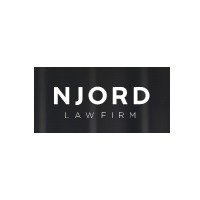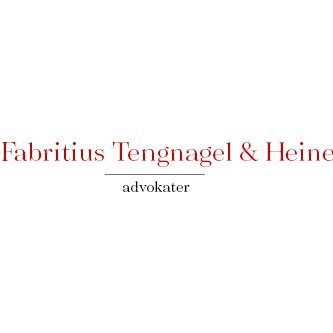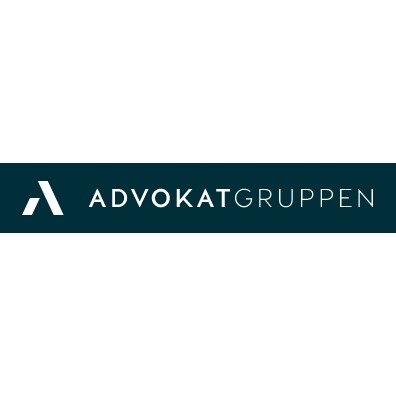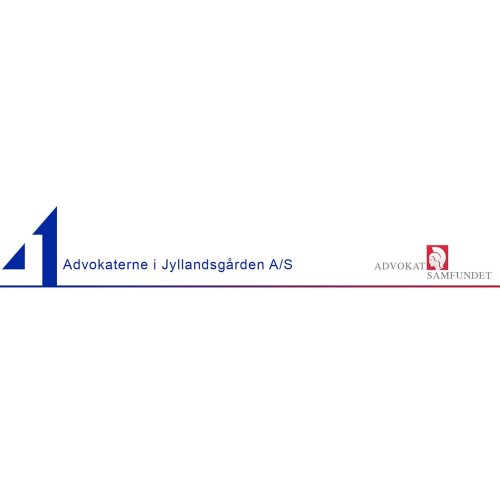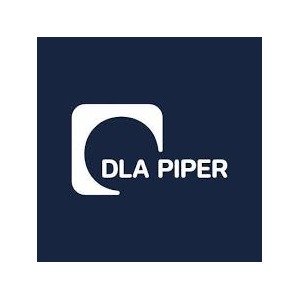Best Structured Finance Lawyers in Denmark
Share your needs with us, get contacted by law firms.
Free. Takes 2 min.
Or refine your search by selecting a city:
List of the best lawyers in Denmark
About Structured Finance Law in Denmark
Structured finance in Denmark involves complex financial instruments and arrangements that are used to support large-scale transactions such as asset-backed securities, securitization, syndicated loans, and other capital market solutions. The legal framework around structured finance ensures that parties meet regulatory requirements, manage risk effectively, and achieve access to capital in an efficient manner. Danish law integrates both national and European Union regulations, making it essential for participants to understand the multilayered environment that governs these transactions.
Why You May Need a Lawyer
Structured finance transactions often involve significant legal and financial complexity. You may require a lawyer if you are:
- Establishing or investing in asset-backed securities.
- Engaging in cross-border financing transactions or seeking to pool different classes of assets.
- Negotiating loan agreements or syndications involving multiple parties.
- Structuring securitizations or other off-balance sheet arrangements.
- Managing risk and ensuring compliance with Danish and EU regulations.
- Resolving disputes or insolvency issues related to structured financial products.
- Needing assistance with taxation considerations of structured finance products.
A lawyer can provide critical advice on transaction structure, help review or draft contracts, ensure regulatory compliance, and represent your interests in negotiations or disputes.
Local Laws Overview
Key aspects of Danish law relevant to structured finance include:
- Regulatory Supervision: The Danish Financial Supervisory Authority (Finanstilsynet) oversees structured finance transactions, particularly in relation to financial institutions, investment funds, and insurance companies.
- Securitization: Danish and EU regulations govern the securitization of assets. Transactions must comply with transparency, risk-retention, and due diligence requirements as outlined under the EU Securitization Regulation.
- Banking Regulations: Denmark operates under both local banking laws and EU directives, including the Capital Requirements Regulation and related rules aimed at market stability.
- Bankruptcy and Insolvency: Danish bankruptcy laws can impact the enforceability of structured finance products, especially regarding asset segregation and the treatment of secured creditors.
- Tax Considerations: Certain structured finance transactions may trigger specific tax consequences in Denmark, including withholding tax, VAT, and stamp duties.
- Contract Law: Transactions are governed by Danish contract law, which emphasizes clarity, mutual intention, and good faith in commercial dealings.
Frequently Asked Questions
What is structured finance and how is it applied in Denmark?
Structured finance is a range of complex financial transactions that allow organizations to raise funds, manage risk, or invest through mechanisms like securitization and syndicated lending. In Denmark, these are widely used by banks, financial institutions, and corporations seeking flexibility in funding or investment.
Is securitization legal in Denmark?
Yes, securitization is legal in Denmark but subject to strict regulatory requirements under Danish law and EU regulations. Participants must follow laws on risk retention, transparency, and investor protections.
Do I need regulatory approval for structured finance transactions?
Certain transactions, particularly those involving financial institutions, may require approval or notification to the Danish Financial Supervisory Authority to ensure compliance with risk management and capital adequacy standards.
How are investor protections ensured in Danish structured finance transactions?
Investor protections are regulated through disclosures, risk retention rules, due diligence requirements, and ongoing supervision by national and EU authorities to minimize systemic risks.
What types of assets can be securitized in Denmark?
Commonly securitized assets include mortgages, commercial loans, receivables, lease contracts, and sometimes more unconventional assets, as long as they qualify under Danish and EU laws.
Are cross-border structured finance deals permitted in Denmark?
Yes, cross-border structured finance transactions are permitted, but they must comply with both Danish law and relevant international regulations, particularly where EU rules apply.
What are the main legal risks of structured finance transactions?
Risks include regulatory compliance failures, contractual disputes, insolvency of counterparties, taxation issues, and market risk. Legal advice can help mitigate many of these risks.
How does Danish bankruptcy law affect structured finance?
Bankruptcy law can impact asset segregation, the priority of claims, and the enforceability of security interests, all of which are crucial for structuring robust transactions.
What are the taxation issues in Danish structured finance?
Taxation issues can include withholdings, stamp duties, VAT, and cross-border tax concerns. Careful structuring by legal and tax advisors is important to optimize tax outcomes and ensure compliance.
When should I contact a lawyer for structured finance matters?
You should consult a lawyer early when planning, negotiating, or executing structured finance transactions, or when facing disputes, regulatory reviews, or insolvencies that may impact your interests.
Additional Resources
If you need further information or support, consider the following organizations:
- The Danish Financial Supervisory Authority (Finanstilsynet) - supervises financial markets and issues guidance.
- Danish Business Authority (Erhvervsstyrelsen) - provides guidance on company law and financial regulations.
- The Danish Bar and Law Society (Advokatsamfundet) - offers a directory of licensed lawyers, including those with structured finance expertise.
- Relevant financial industry associations, such as the Danish Bankers Association, that offer market and regulatory updates.
- Legal libraries and law faculties at Danish universities, which often have resources on financial law.
Next Steps
If you require legal assistance in structured finance:
- Identify the nature and scope of your structured finance needs.
- Consult a lawyer or law firm with expertise in structured finance and Danish financial regulations.
- Gather all relevant documentation and background information on your transaction or query.
- Engage in a detailed discussion to ensure compliance with Danish and EU laws and to address all risk factors.
- Maintain ongoing legal support throughout the life cycle of your transaction to manage new risks or regulatory changes as they arise.
Taking these steps will help safeguard your interests and ensure your structured finance transactions are secure and compliant in Denmark.
Lawzana helps you find the best lawyers and law firms in Denmark through a curated and pre-screened list of qualified legal professionals. Our platform offers rankings and detailed profiles of attorneys and law firms, allowing you to compare based on practice areas, including Structured Finance, experience, and client feedback.
Each profile includes a description of the firm's areas of practice, client reviews, team members and partners, year of establishment, spoken languages, office locations, contact information, social media presence, and any published articles or resources. Most firms on our platform speak English and are experienced in both local and international legal matters.
Get a quote from top-rated law firms in Denmark — quickly, securely, and without unnecessary hassle.
Disclaimer:
The information provided on this page is for general informational purposes only and does not constitute legal advice. While we strive to ensure the accuracy and relevance of the content, legal information may change over time, and interpretations of the law can vary. You should always consult with a qualified legal professional for advice specific to your situation.
We disclaim all liability for actions taken or not taken based on the content of this page. If you believe any information is incorrect or outdated, please contact us, and we will review and update it where appropriate.
Browse structured finance law firms by city in Denmark
Refine your search by selecting a city.





